Reading Time: 5minutes
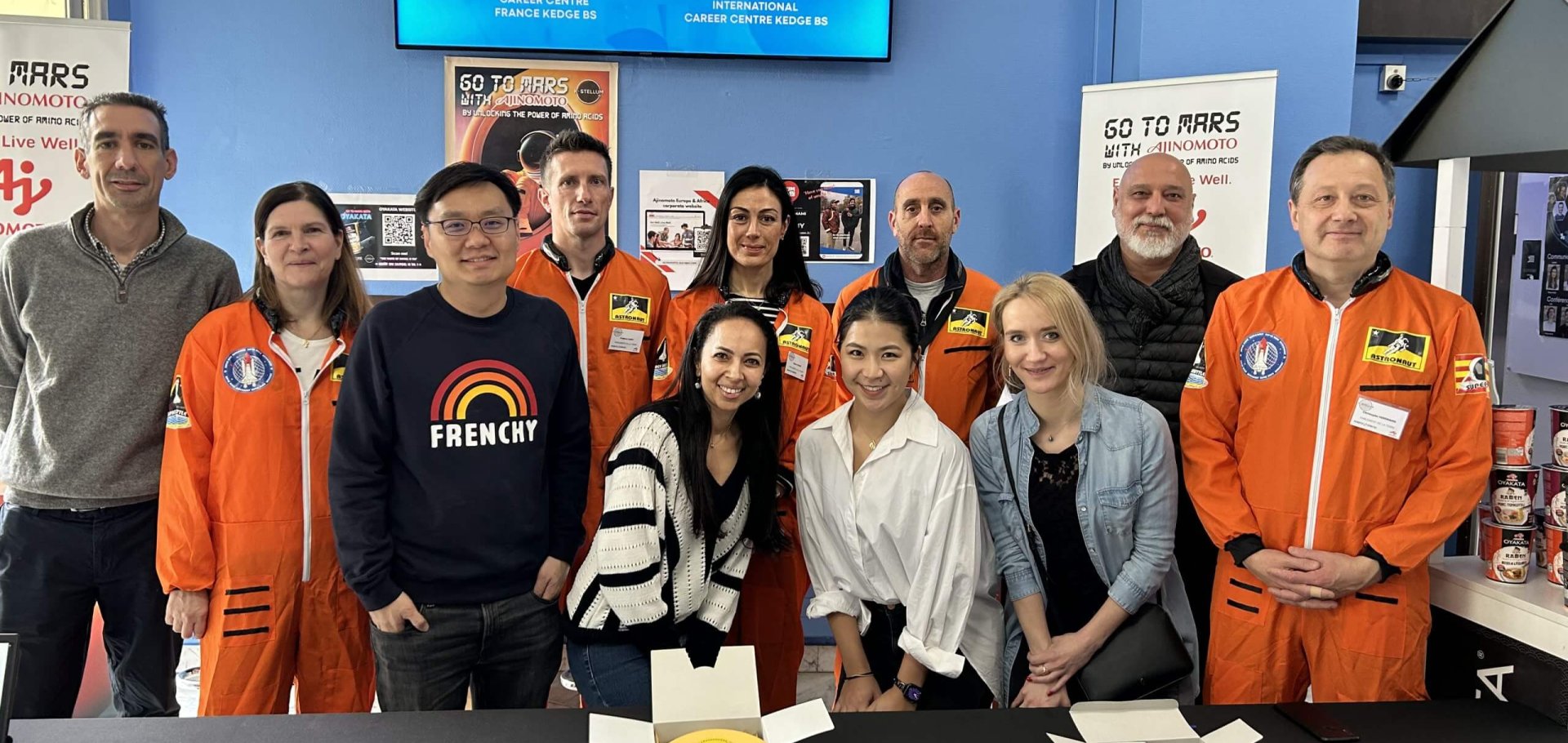
Table of Contents
Given the global challenges of climate change and a population on Earth of 8 billion, innovative and sustainable solutions are now needed more than ever. For the sake of future generations, the status quo won’t suffice. Humanity requires interventions that push the boundaries of what’s possible.
How can we ensure our survival as a species? To address that question, the Ajinomoto Group is actively working to educate Gen Z and other young people about the power of amino acids, enabling them to explore possibilities for living on Mars as well as adapting to present challenges we face right here on Earth.
A glimpse into the future: Can humans live on Mars?
Recent NASA space missions have unveiled tantalizing evidence Mars could be made habitable for humans in the not-too-distant future. New research points to the existence of liquid water capable of supporting life beneath the Martian surface, sheltered from the sun’s harmful radiation.
While permanent Mars colonies probably won’t become a reality in our lifetimes, or even our children’s, research into how to survive on the Red Planet could help provide near-term solutions to improve conditions on this Blue Planet we call home.
Going to Mars with KEDGE’s K-Stellum Project
In March 2023, Ajinomoto Europe S.A.S. collaborated with KEDGE Business School’s campus in Marseille, France to help sponsor Go to Mars, the inaugural edition of the K-Stellum Project, a three-day event aimed at raising students’ awareness of climate and environmental challenges and economic and social issues to effect positive impact. The unique, immersive experience is also aimed at energizing the campus community, strengthening dialogue, and building lasting relationships.
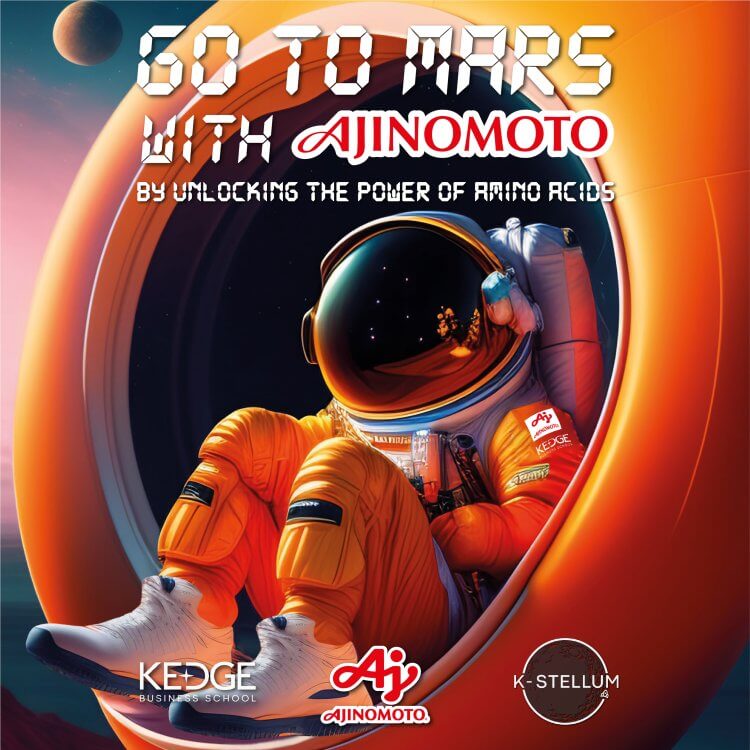
Over a period of 18 hours, 300 students embarked on a mission to build a virtual Mars colony using Microsoft’s Minecraft video gaming platform featuring an accurate recreation of the Martian surface. The French students even brought sleeping bags to campus and stayed overnight, subsisting on “survival packages” of freeze-dried space rations.
The simulation set the date forward to 2052, when “teams of pioneers are sent to Mars to build viable, self-sufficient communities,” according to the mission brief. Divided into groups of 10, the student “pioneers” were tasked with solving challenges related to housing and infrastructure, food production, rest, society, politics, sports, and health. They also had to manage a budget, develop risk management plans, establish a financial system, and implement social programs.
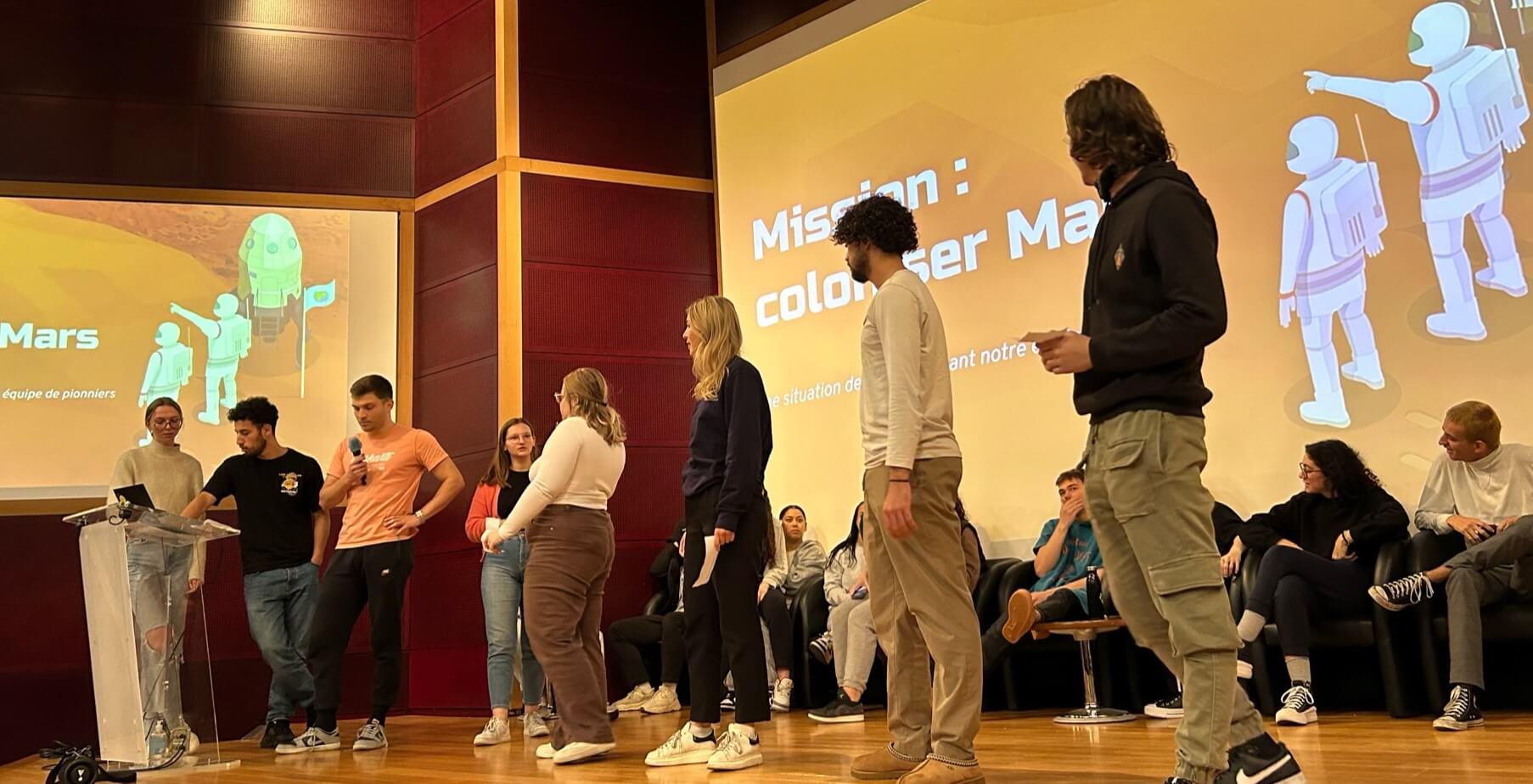
Students present their groups’ solutions to colonizing Mars.
Harnessing the power of amino acids
What does “AminoScience*” have to do with this cosmic endeavor? In June 2022, it was announced debris from an asteroid brought back by a Japanese spacecraft contained about 20 amino acids. This finding proved for the first time that these essential building blocks of life exist beyond our planet.
To prepare the students for their mission, representatives from Ajinomoto Europe delivered a presentation on how amino acid supplements might help humans adapt to life on Mars by supporting the immune system to fight unknown viruses, relieve mental fatigue, assist liver metabolism, prevent skin damage, strengthen muscles in low gravity, and improve sleep quality. They’d also be needed in the form of biostiumlants to support crop growth on Mars and in Ajinomoto Build-up Film®, a key component of electronic devices crucial to future interplanetary communications. These were important learnings for the students, who admitted being unaware amino acids functioned in such diverse ways.
*A collective term for the various materials, functions, technologies, and services derived from research and implementation processes with a rigorous focus on unlocking the power of amino acids. It also refers to the Ajinomoto Group’s unique scientific approach to connect these to resolving social issues and contributing to well-being.
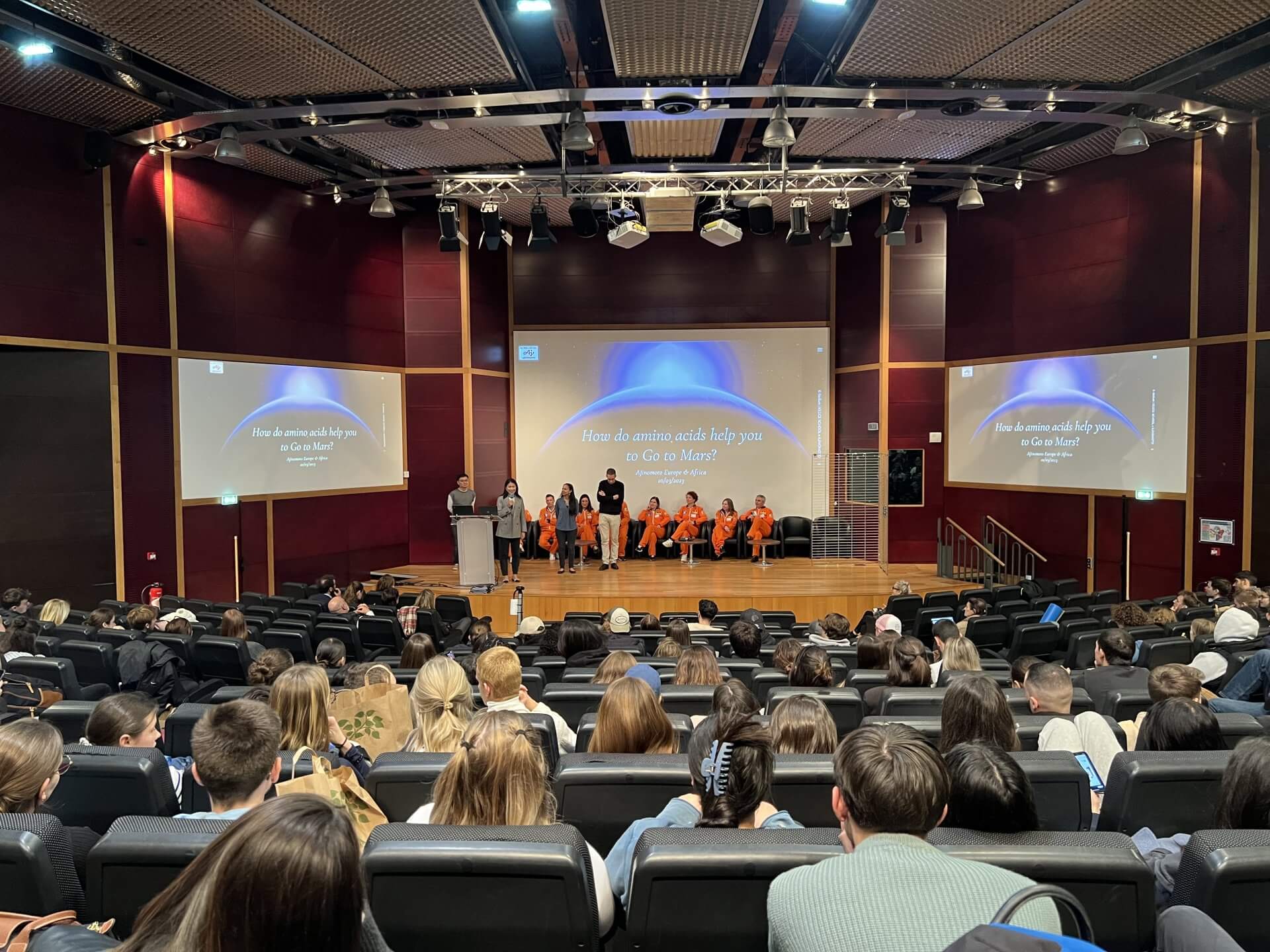
KEDGE students listen attentively to the team’s presentation.
Amino acids in food: the Umami Challenge
Amino acids will certainly play a key role in developing foods for future manned Mars missions, including lightweight, easy-to-prepare dehydrated foods like OYAKATA® cup noodles. To convey the importance of glutamate and other amino acids in crafting delicious, nutritious foods, Ajinomoto Europe representatives designed the Umami Challenge, a hands-on gustatory experience to introduce students to the savory fifth taste.
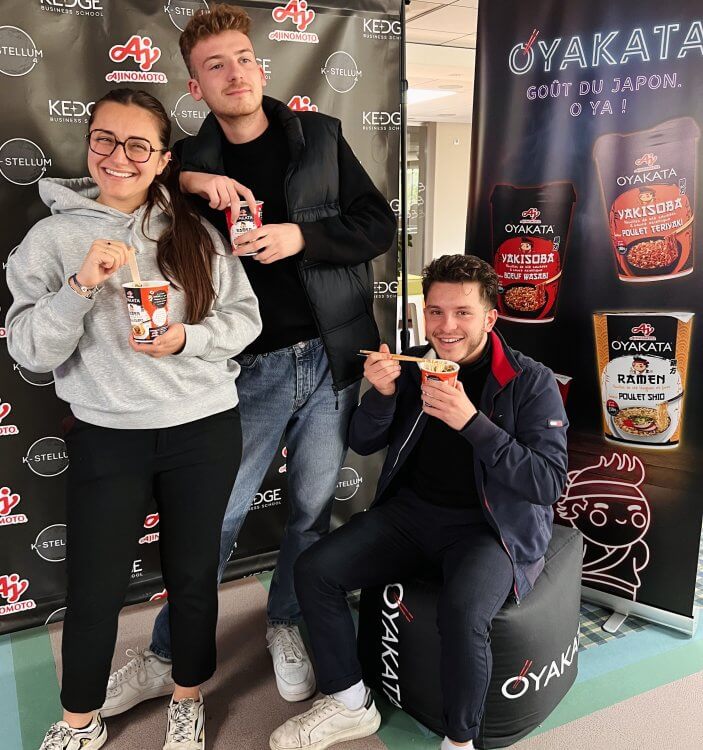
Free samples of OYAKATA® were distributed to students after the presentation.
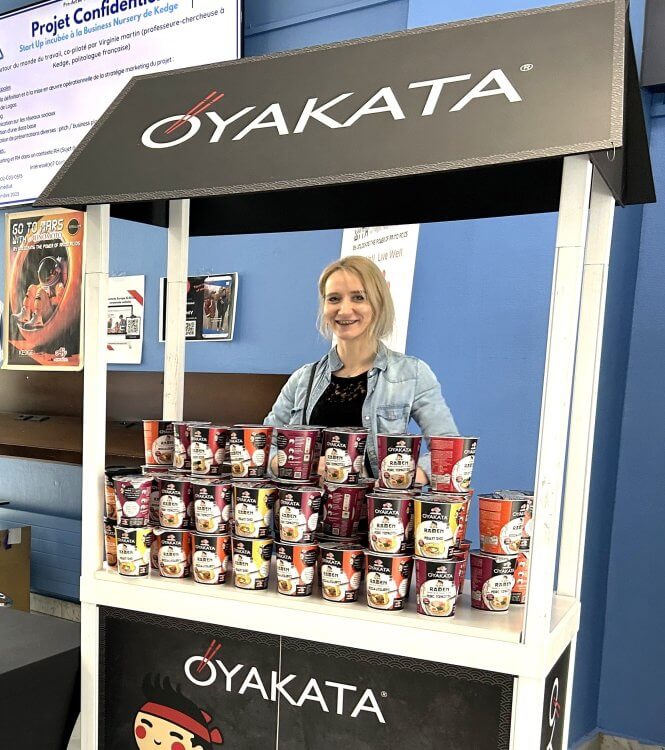
In the first challenge, students were presented with a sampling of everyday foods and tasked with identifying those richest in umami, or glutamate. For some students, distinguishing between sweet and umami proved difficult. To help, they accessed resources like Ajinomoto Europe’s website and its YUMAMY Instagram account. Students were surprised to learn many of their favorite foods are in fact rich in glutamate.
In the second challenge, the French students got to indulge their national love of cheese. Presented with a range of cheeses, they were asked to rank them in order of umami richness, an exercise that provided insights into how fermentation duration influences glutamate levels. Much to their surprise, the cheese richest in umami proved to be an Italian parmesan.
Social media played a key role, with students creating videos and posts to share their experiences, and their feedback was encouraging, with many saying the event had introduced a subject they’d been unaware of or had had false impressions about. The brand exposure it provided left many students with the desire to explore more amino acid products or possibly even pursue a career with the Ajinomoto Group in the future.
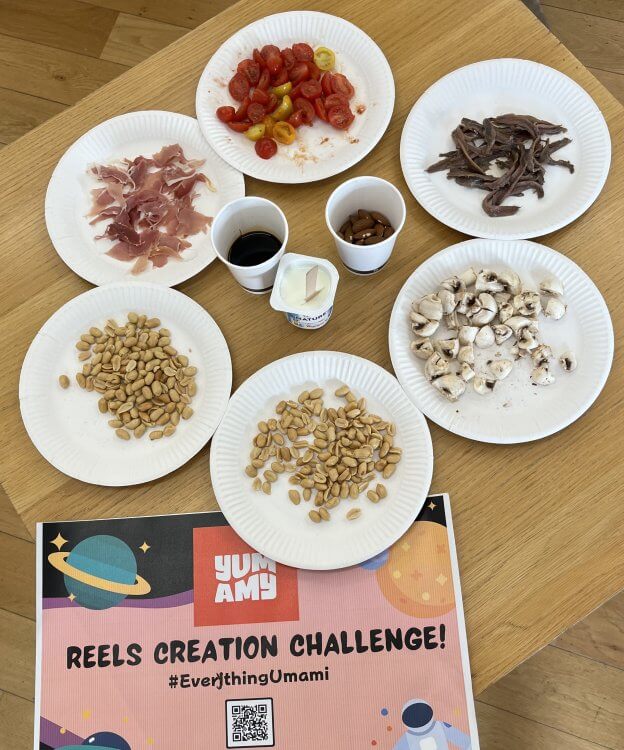
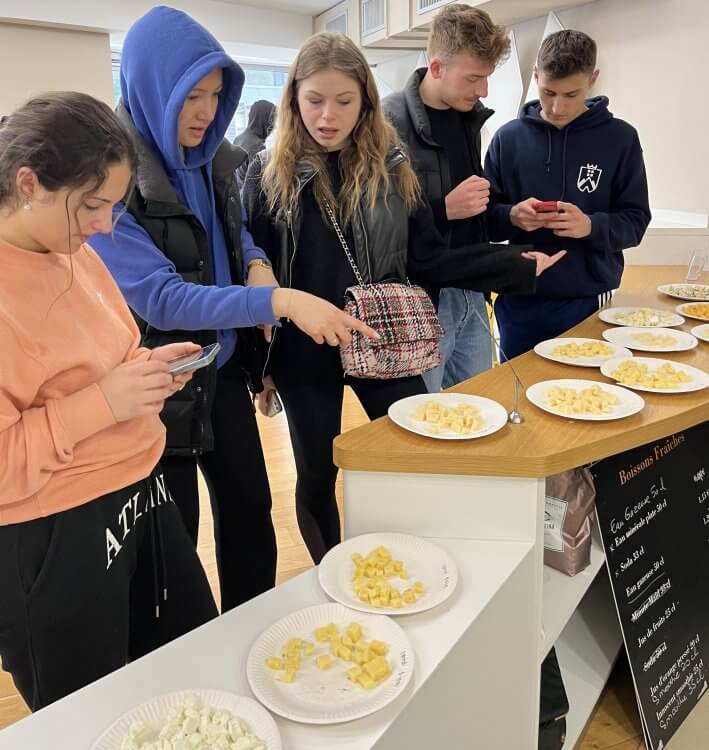
Looking ahead
Ajinomoto Europe has partnered with KEDGE on various corporate challenge programs since 2021, experience that proved key to Go to Mars’s success. “Despite having to prepare our presentation in a very short time and adapt to KEDGE’s academic rather than corporate style, our team saw a real opportunity to promote the power of amino acids in a fun way,” says Human Resources Director Ornella Silva.
That enthusiasm struck a chord with both students and teachers at the French business school. “Ajinomoto’s participation went above and beyond what we’d expected,” says Dr. Laurence Le Poder, KEDGE’s Associate Dean of Education. “We truly appreciate their engaging with our students on an academic level, in addition to their generous financial support.”
Since Go to Mars, Ajinomoto Europe has also participated in KEDGE’s annual Open Innovation Challenge. “Thinking and working together are key to connecting with Gen Z,” says Yuka Iino, who led the company’s Go to Mars team. “We still have a long way to go to raise awareness, and there’s room for improvement in how we connect and engage with audiences.”
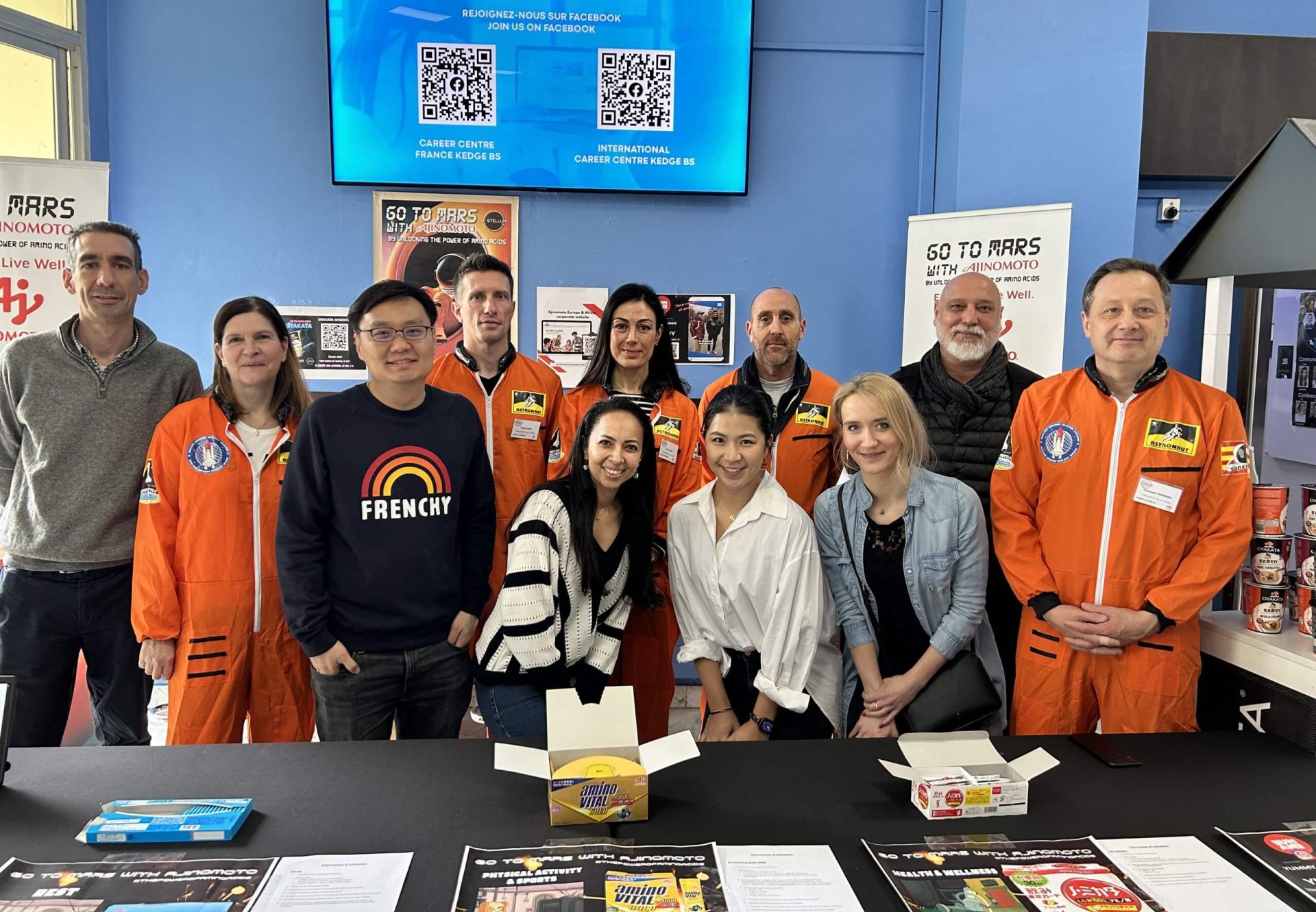
Ornella Silva (center left) and Yuka Iino (center right) with other Go to Mars team members
Ajinomoto Europe is discussing the possibility of returning to Marseille next year for the second edition of the K-Stellum Project. Until then, the Ajinomoto Group remains committed to inspiring the next generation of business leaders to become tomorrow’s change makers by offering insights into the possibilities “AminoScience” holds for helping address challenges like food crises and climate change, and maybe even making life on Mars a reality one day.
Stories you may like
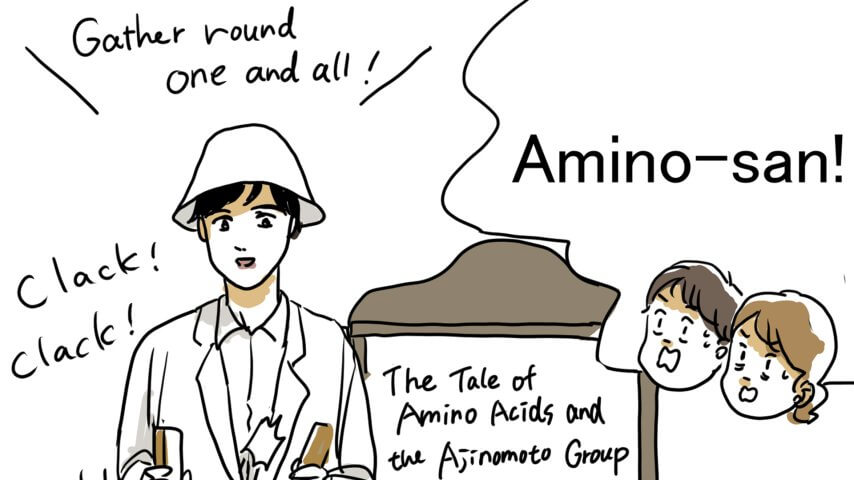
Manga Series: Ask Amino-san!
- Amino Acids
- Health and Well-being
- Innovation
- Purpose

Achieving sustainability by building healthy, long-term relationships
- Amino Acids
- Health and Well-being
- Innovation
- Purpose

Thriving on plant-based protein: solutions for a sustainable future
- Amino Acids
- Health and Well-being
- Innovation
- Purpose


